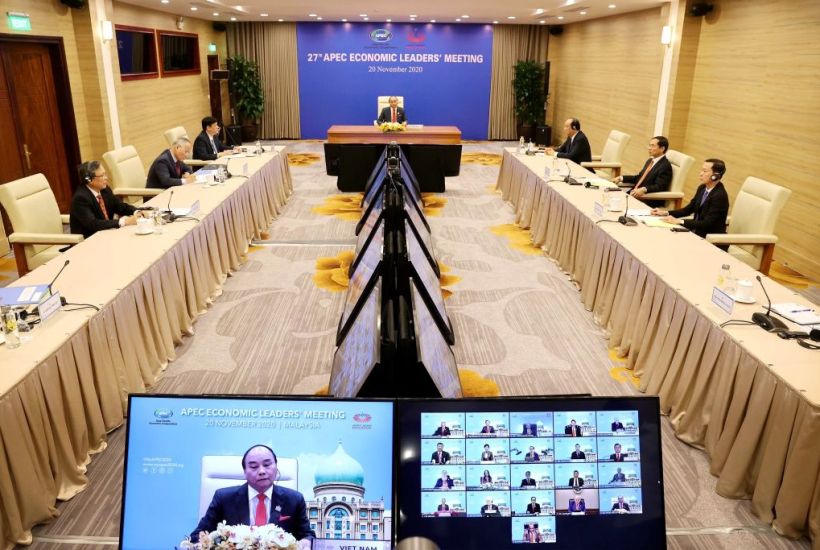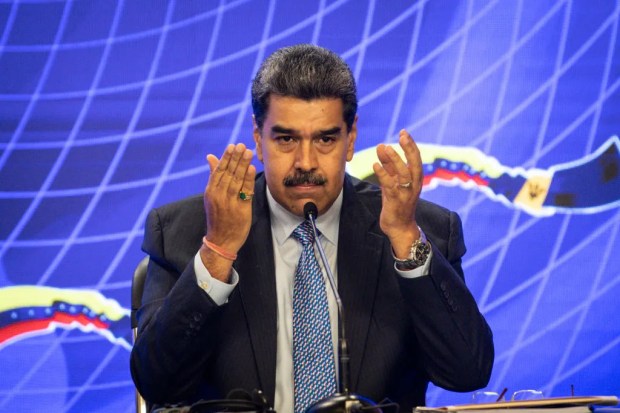While final negotiations on the UK’s relationship with the EU continue to drag, No. 10 is moving rapidly to expand Britain’s role in the Indo-Pacific, returning ‘east of Suez’ after a half-century absence. Tied to this goal, Prime Minister Boris Johnson unveiled a modest, yet real, increase in Britain’s defense spending last month, totaling some $21.25 billion and pledging to once again make Great Britain the foremost naval power in Europe. Johnson’s budget announcement sets the stage for implementation of London’s long-awaited ‘Integrated Review’, which is touted as the most significant strategic reassessment of the UK’s diplomatic and security policies since the end of the Cold War. Both the anticipated recommendations of the Integrated Review and the boost in military funds will help Britain expand the global chessboard on which it plays, most significantly in the Indo-Pacific region. Incoming US president Joe Biden should welcome an expanded role for London as he grapples with how to deal with China after the Trump years.
In 1968, just a few years after former US secretary of state Dean Acheson famously quipped that post-World War Two ‘Great Britain has lost an empire and has not yet found a role,’ London announced its withdrawal from Asia, abandoning its major defense bases in Malaysia and Singapore. The decision seemed to mark the formal end of centuries of British forward-based presence in what it then called the ‘Far East’.
Five decades on, Britain seems poised to return, joining the United States and Asian partners worried about the growing influence and power of China in Eurasia. With 1.6 million expatriate Brits working in the Indo-Pacific region, and with territory and Commonwealth members stretching from the Indian Ocean to the western Pacific Ocean, London has an undeniable stake in regional stability. Such interests have recently been underscored by the 2018 opening of a permanent base in Bahrain and the announcement of plans to send the Royal Navy’s new aircraft carrier Queen Elizabeth to the Indo-Pacific to uphold freedom of navigation, earning a rebuke from Beijing in response.
As the pieces of the Integrated Review fall into place, a fully-fledged strategy for London’s return to Asia has just been released by Policy Exchange. The product of an international blue-ribbon commission, chaired by former Canadian prime minister Stephen Harper and including former Australian foreign minister Alexander Downer, former Nato secretary-general and UK defense secretary Lord Robertson and former UK defense secretary Sir Michael Fallon, the report lays out a comprehensive strategy for Britain’s reengagement in the Indo-Pacific region.
Moving beyond the US’s long-standing ‘hub-and-spoke’ model of bilateral alliance, the UK can hark back to the vision of the 1941 Atlantic Charter, signed by President Franklin D. Roosevelt and Prime Minister Winston Churchill, which articulated the goals of cooperative international behavior that came to underpin what is commonly called the liberal international order. The Policy Exchange report calls for an ‘Indo-Pacific Charter’ to link together a reinvigorated community of free and independent Asian nations to promote regional stability and prosperity. A proposed charter calls for respect for sovereignty, territorial integrity, ensuring an open and free internet and data security, among other goals.
Free to craft a new strategy for itself, London should pursue a twin-track approach: a ‘prosperity agenda’, focused on trade, economics and development; and a ‘security agenda’, committing Britain to a larger political, diplomatic and defense role in the region. The UK should partner with a core of leading Pacific nations, including Japan, Australia and Canada, while seeking to deepen ties with India. In terms of regional engagement, London should more deeply participate in multilateral organizations and meetings, such as APEC and the East Asian Summit, but also propose a host of initiatives related to good governance, cyber security, financial development and climate protection — all areas where Britain’s particular strengths can help it to play an increased and important role in maintaining the rules-based order in the Indo-Pacific.
Expanding relations with Taiwan is a moral and strategic necessity, as the Policy Exchange report notes, another proposal sure to anger Beijing and a possible area of enhanced cooperation with Washington. In addition, London needs to do more to help Hong Kong, including offering citizenship for Hong Kongers and recreating Hong Kong civil society abroad.
Given that supply chain resilience, cybersecurity, fintech development and the like remain addressed at best in ad hoc ways throughout the Indo-Pacific, London can step up ways that even America does not. While the UK may not be able to forward deploy 40,000 troops (the number of US military personnel in Japan alone) or permanently base an aircraft carrier in the region, it can none the less use the power of financial expertise in the City of London and the cyber excellence of the GCHQ to help fill in the gaps of regional cooperation.
***
Get a digital subscription to The Spectator.
Try a month free, then just $3.99 a month
***
From a geopolitical standpoint, moreover, the natural UK area of interest in Asia is in the Indian Ocean and southwestern Pacific, where it has the bulk of its territory and expatriates (similar to France). Focusing enhanced British engagement in this ‘southern tier’ can naturally complement the greater US focus on northeastern Asia.
The need to invigorate and defend a community of free nations in the Indo-Pacific is increasingly evident. Because Australia has attempted to defend the integrity of its political system and secure the safety of its telecommunications system, among other actions, it is currently being targeted by Beijing for economic warfare. China, which accounts for over 30 percent of Australia’s exports, is halting imports of lobsters, timber and barley, among other actions and threats. Taking up the State Department’s idea of an ‘Economic Article V’, whereby allied nations would pledge to step in and buy imports being banned or placed under high tariffs by a nation exacting political revenge would also help deepen trade ties among democracies.
Adding the global weight of the UK, still a leading world power, to allied efforts to strengthen maritime security and political and economic cooperation should be welcomed by the incoming Biden administration. It will take some pressure of off Washington and can be a way to further develop meaningful communities of interest in the Indo-Pacific. Boris Johnson’s government seems committed to opening a new era east of Suez. Joe Biden and his team should embrace the idea of a new ally in the world’s most important geopolitical theater.
Michael Auslin is the Payson J. Treat Distinguished Research Fellow at Stanford’s Hoover Institution and was the principal drafter of the Policy Exchange Indo-Pacific Commission report.
See the full story of Biden should embrace Britain’s new Indo-Pacific strategy on Spectator USA.<//>
Got something to add? Join the discussion and comment below.
Get 10 issues for just $10
Subscribe to The Spectator Australia today for the next 10 magazine issues, plus full online access, for just $10.



















Comments
Don't miss out
Join the conversation with other Spectator Australia readers. Subscribe to leave a comment.
SUBSCRIBEAlready a subscriber? Log in